Fertilizing herbs is easy, and helps to keep your plants thriving and looking great. In this post, I’ll talk about different types of fertilizers, and which are the best. Then I’ll show you when, how often, how much, and exactly how to feed your herbs.
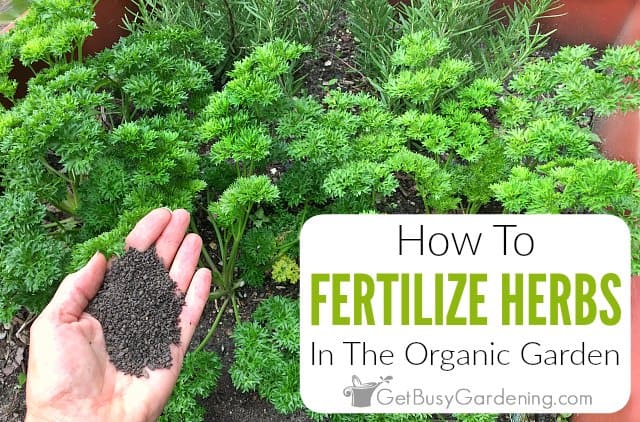
How To Fertilize Herbs
The exact steps for feeding your herbs depends on whether you’re using granules or a liquid. Always read the label for specific instructions, but here are some general guidelines…
- Using liquid fertilizer – Mix the recommended amount with tepid water in a watering can. Then slowly pour it over the top of the soil around the base of each plant.
- Applying slow-release granules – Sprinkle the recommended amount of pellets evenly around the base of your herb plants. Mix it into the top layer of soil using a hand rake, taking care not to disturb the roots. Water the soil to activate the granules.
Do Herbs Need Fertilizer?
Herbs are not heavy feeders, so you don’t need to fertilize them as often as other plants in your garden. But they do benefit from the added nutrients, especially when they’re growing in containers.
That’s because nutrients are flushed out of the pot every time you water. And containerized herbs have no way to replenish the nutrients they use up.
Related Post: How To Grow Herbs At Home
The Best Fertilizers To Use For Your Herbs
The best type of fertilizer to use for herbs is one that is rich in nitrogen, which will support vigorous leaf growth. Stay away from those that are higher in phosphorus, as that will encourage blooming.
I highly recommend using organic products rather than chemical ones. Synthetic fertilizers strip the soil of its natural nutrients, which is not good for the long-term health of the plant. Plus, it’s way too easy to overuse them, which can burn the roots.
There are two main types of fertilizers: liquids and granules. Below I’ll tell you the difference between them, along with the pros and cons, and I’ll even list out a few of my favorite brands.
Liquid Fertilizers
Plants can absorb water-soluble fertilizers very quickly, so they’re great for giving your herbs a quick boost of nutrients. But they don’t last as long as granular types, so you need to apply them more often. Here are my favorite brands…
- Liquid kelp seaweed
- Compost tea concentrate
- Worm castings tea
- Compost tea bags
- Fish emulsion
Slow-Release Granules
Granular fertilizers release nutrients into the soil slowly over time. The plant can’t absorb them immediately, so it will take some time to work. But you don’t have to apply them as often, and they will feed your herbs over a longer period of time. Here are the types that I use…
- Organic granules
- Natural compost (commercial or homemade)
- Earthworm castings
- Composted manure
- Root zone feeder packs
When To Fertilize Herbs
You can apply liquids or granules any time during the day, but never feed your herbs if they are drooping or dehydrated.
Otherwise they will absorb the fertilizer too quickly, which can cause severe damage, or even kill a stressed plant.
How Often To Fertilize Herbs
You don’t need to feed them very often, so don’t stress over following a strict regimen. For best results, always follow the instructions on the label.
But, in general, you can apply granules a few times during the growing season. I like to add them to the hole at planting time, and then I top-dress them once or twice more during the summer.
You should apply liquid fertilizers more often, but don’t overdo it. Add them to your watering can once every 2-4 weeks for herbs in pots, and every 4-6 weeks for plants in the ground.
How Much Fertilizer Should You Use?
The exact ratio varies depending on if your herbs are in the ground or in pots. It also depends on the type of fertilizer you’re using.
Your first step should always be to read the label on the package. It should tell you how much to use for pots -vs- the garden.
Fertilizing herbs isn’t required, but it will help them flourish and look great too. Once you get the hang of it, you’ll see just how easy and beneficial it is.
If you’d like to learn how to make the most of your space and get as much homegrown food as possible, then my Vertical Vegetables book is perfect! It will teach you all you need to know, has tons of gorgeous photos, and includes 23 DIY projects you can build for your own garden. Order your copy today!
Learn more about my Vertical Vegetables book here.
More Herb Gardening Posts
- 11 Easy Herbs To Grow In Your Garden
- 15 Perennial Herbs To Grow In Your Garden
- How To Preserve Herbs Fresh From The Garden
Share your tips for feeding your herb plants, or your favorite organic fertilizer brands in the comments below.
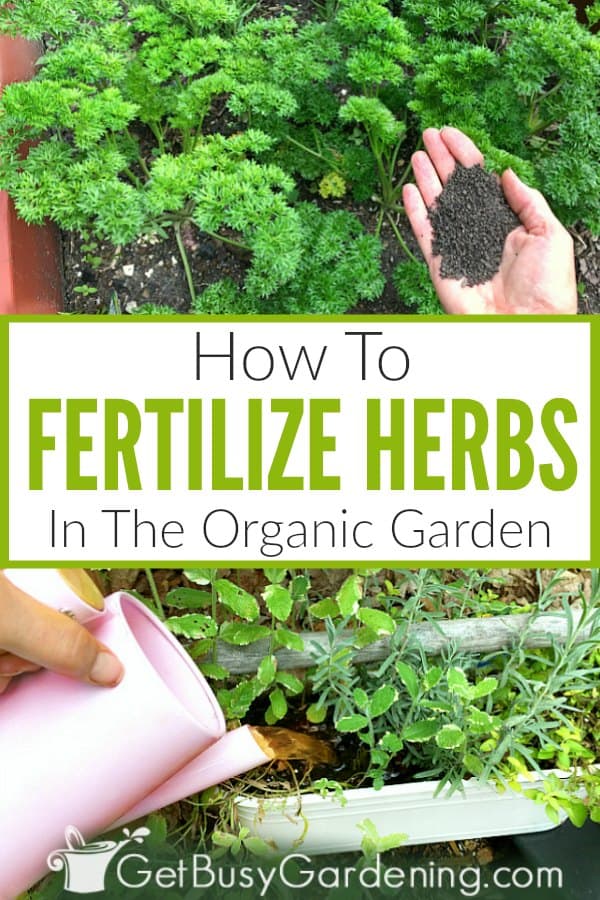
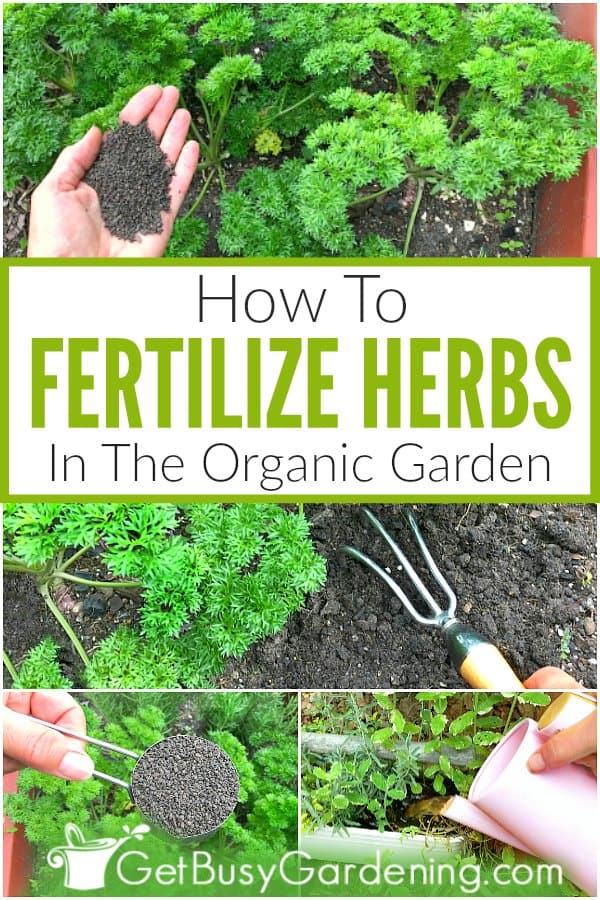
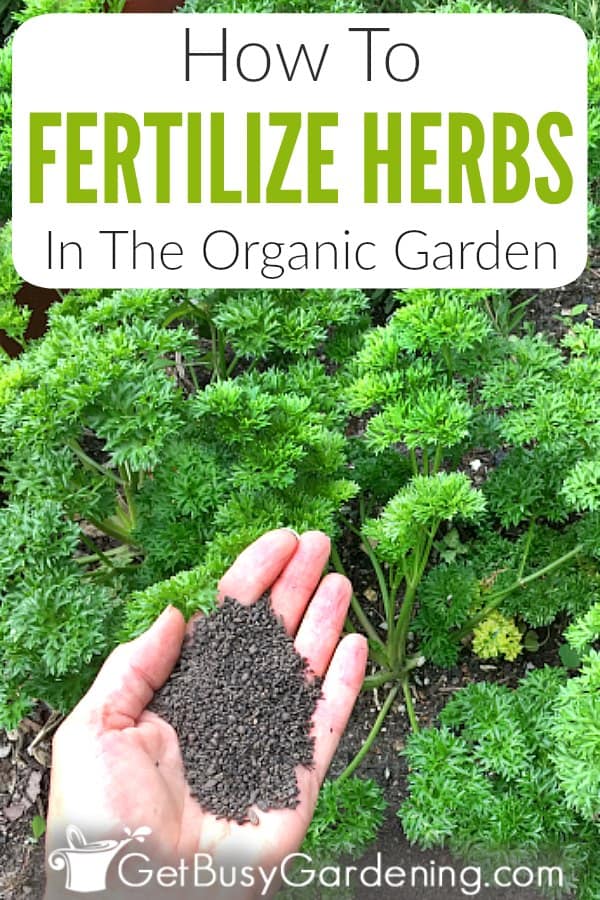

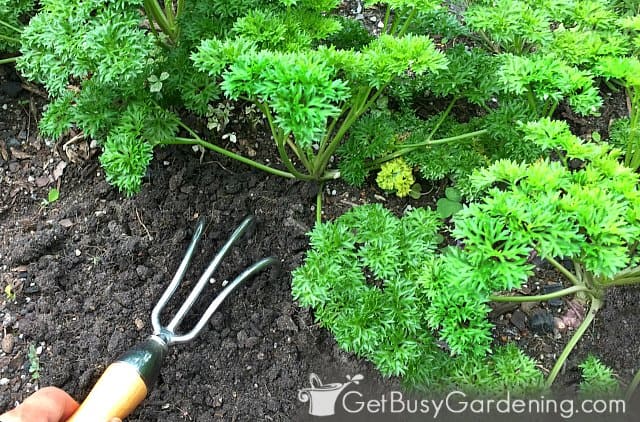
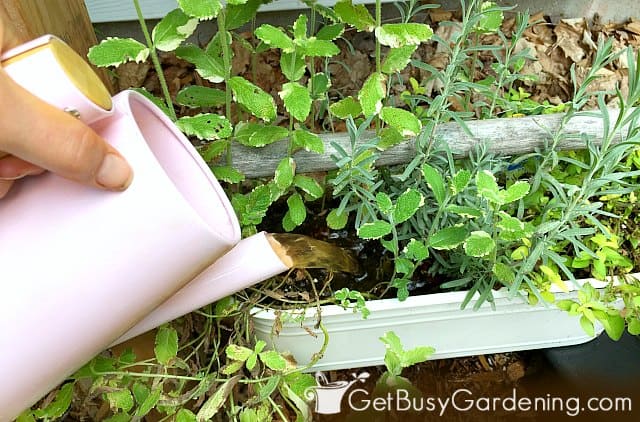
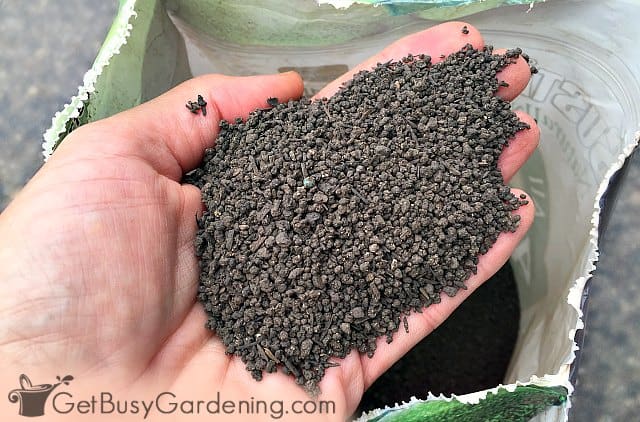
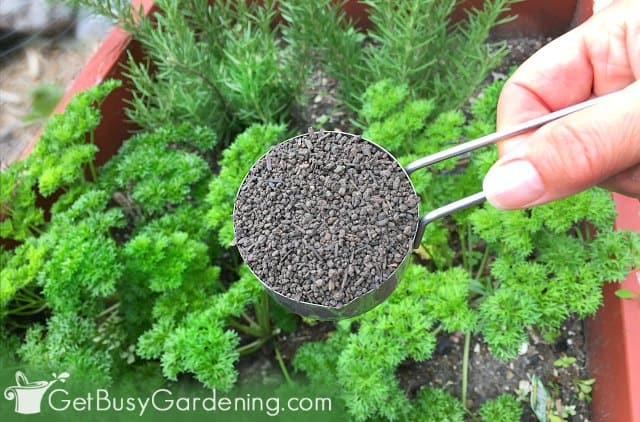
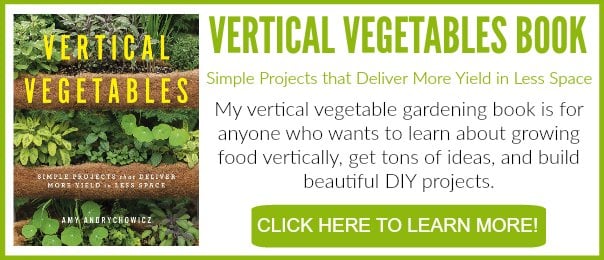

alex says
Didn’t know this was a thing, very helpful !! I think me and the wife will start implementing this
Amy Andrychowicz says
Awesome! Happy to help.
Bill Fritch says
Coffee grounds are a good fertilizer for herbs.
Amy Andrychowicz says
Awesome, thanks for sharing.